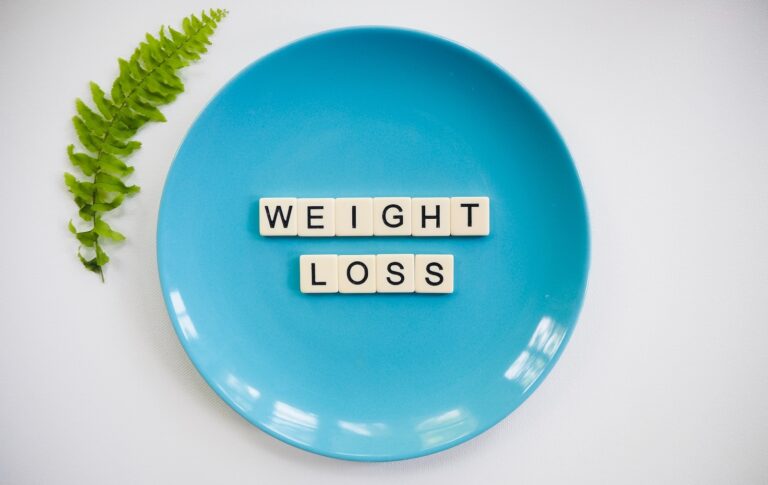Debunking Common Weight Loss Myths and Misconceptions
Are you tired of feeling like you’re constantly floundering in your weight loss journey? Do contradictory advice and confusing information leave you feeling helpless? It’s time to separate fact from fiction and finally debunk those common weight loss myths and misconceptions.
From crash diets to the idea that skinny equals healthy, we’re diving into it all so that you can adopt a successful approach to achieving sustainable and realistic weight loss goals. Say goodbye to false promises and misleading tips – it’s time to set yourself up for success with the truth about effective weight loss practices.
Myth: Eating Fat will make you Fat

A widely accepted belief is that eating fat will cause your body to store more fat and result in weight gain. However, the truth is that consuming healthy fats can actually help to regulate blood sugar levels, increase energy levels and promote a healthy appetite. In addition, people who eat a variety of nutrients, including healthy fats, tend to have lower rates of obesity and heart disease.
There is no definitive answer when it comes to the effects of eating fat, as it can depend on a person’s overall diet and physical activity level. However, knowing that consuming healthy fats can help you stay healthy and slim is good news.
Myth: You have to Count Calories to Lose Weight
While calorie counting can be helpful in maintaining your weight, it is not the only factor that determines how much weight you will lose. In fact, success in weight loss typically hinges on a combination of diet and exercise habits.
According to the National Institutes of Health (NIH), humans and other mammals get their energy from food. The calories in food provide the fuel your body needs to function. When you consume more calories than you use, the extra energy is stored as body fat. To lose weight, burn more calories than you eat through activities such as walking, biking, gardening or skiing.
In order to boost your chances of success, make sure that you are eating a balanced and nutritious diet. Include plenty of fruits, vegetables and whole grains in your meals. Avoid processed foods, sugary drinks and excessive amounts of saturated and unhealthy fats. If you are trying to lose weight, aim for moderate exercise habits. Working out for 30 minutes or more five times a week is recommended.
As with all health related matters, it is always important to consult with your healthcare provider before making any major changes to your diet or exercise habits.
Myth: You Need to Exercise to Lose Weight
There are a lot of myths out there about how you need to exercise to lose weight. In this article, we’re going to dispel some of the most common ones….
Exercising isn’t the only way to lose weight
This is one of the most common misconceptions out there. If you want to lose weight, doing things like eating healthy and avoiding added sugars are just as important (if not more so). Exercising is a great way to burn calories, but it’s not the only way. So if you don’t have time for an hour-long jog or workout, don’t let that stop you from trying to improve your health!
Exercising will make you bulky
This misconception comes from a perception that people who are obese are always big because they’re big all over – their chests, their backs, etc. But that’s simply not true! A lot of people who are obese have smaller muscles in these areas because they don’t spend enough time working them. So even if you do start packing on the pounds after starting an exercise program, it won’t necessarily be because your body is converting more calories into fat – it could just be due to muscle growth!
Exercising will make you miserable
Another common misconception is that exercise is always going to be really unpleasant. But that’s not always the case! In fact, there are a lot of different types of exercises out there that can be really enjoyable and beneficial for your health.
So if you’re not sure whether or not you should start working out, talk to your doctor or a health professional first. They can help you figure out the best way to get started and avoid any potential pitfalls.
Myth: Cutting Calories Causes Dehydration and Hunger
One of the most persistent myths about weight loss is that eating fewer calories will result in weight loss. In fact, cutting calories can actually cause dehydration and hunger.
When you cut calories, your body tries to conserve water by reducing intake and excretion. If you’re already dehydrated, this can lead to more intense hunger cravings and even famine-like conditions. In extreme cases, people have even died from a lack of water as a result of calorie restriction!
Instead of trying to restrict caloric intake, try to eat nutrient-rich foods that provide satisfying amounts of energy without filling up on unwanted calories. Consider incorporating high-quality protein into your diet, along with healthy fats and fibrous vegetables. This will keep you regular and energized without all the negative consequences of calorie restriction.
Truth About the Keto Diet
The ketogenic diet is a high-fat, low-carbohydrate diet that has been used to treat epilepsy since the 1920s. It’s also been used to treat conditions such as type 2 diabetes and autism. There are some real benefits to the ketogenic diet, but it’s not perfect. Here are 7 truths about the keto diet you need to know:
- The keto diet is not a quick fix.
Anyone who has tried the keto diet knows that it’s not a quick solution. In order to be successful with this lifestyle change, you need to be patient and commit to following the guidelines rigorously.
- The keto diet is not for everyone.
If you’re pregnant, nursing, have heart disease or any other pre-existing medical conditions, please consult with your doctor before starting the keto diet. While it may be beneficial for some people, it may not be right for you.
- The keto diet can lead to weight loss…but it’s not guaranteed.
While the keto diet is effective at promoting weight loss in some people, it’s not guaranteed that every individual will see results. You may need to stick with this lifestyle change for a while in order to see consistent results.
- The keto diet is not a sustainable way of eating.
While the keto diet may be effective at promoting weight loss in the short-term, it’s not a sustainable way of eating. If you want to keep the weight off long-term, you need to juries and incorporate regular exercise into your lifestyle.
- The keto diet can increase inflammation.
While the keto diet can lead to weight loss, it can also increase inflammation in the body. If you’re looking to decrease your risk of chronic diseases such as heart disease, stay away from diets that are high in inflammatory foods.
- The keto diet can be difficult to follow.
There is no one-size-fits-all approach to the keto diet, which means that it can be difficult to stick with this lifestyle change if you’re not prepared for the challenges. Make sure to read up on the guidelines before beginning this diet, so that you have a better chance of success.
- The keto diet is not a magic bullet for health problems.
While the keto diet may be effective at treating certain medical conditions, it’s not a cure-all for all types of illnesses . If you’re looking for a permanent solution to your health problems, please consult with your doctor before starting this diet.
Conclusion
There are a lot of misconceptions and myths out there about weight loss, but hopefully this article has cleared some things up for you. Remember that weight loss is a gradual process – if you’re working hard at it, you’ll be successful! So what are you waiting for? Get started on your new healthy lifestyle today!






